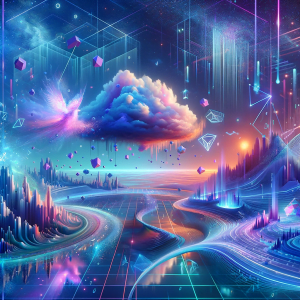Dictionary.com has announced its Word of the Year for 2023, and it’s not what you might expect. In a year marked by technological advancements and the profound impact of artificial intelligence (AI), the chosen word is “hallucinate.” The selection of “hallucinate” as the Word of the Year reflects the evolving landscape of language and technology, as AI continues to change the way we work, learn, create, and interact with information. Dictionary.com’s team of experts used lexicography and data science to identify a single word that encapsulates AI’s profound effects on our future.
Surprisingly, it’s not the first time that the word has been highlighted this year. Cambridge dictionary’s favourite word of 2023 was also “hallucinate.” The word was chosen because its new meaning “gets to the heart of why people are talking about AI,” as stated in a post on their website as well. Generative AI is described as a “powerful” but “far from perfect” tool, and it showcases that “we’re all still learning how to interact with safely and effectively – this means being aware of both its potential strengths and its current weaknesses.”
The rise of “hallucinate”: AI’s impact on language

What is an AI hallucination?
Hallucinate, in the context of AI, means to produce false information contrary to the intent of the user and present it as if true and factual. This definition highlights the potential pitfalls of AI technology, where chatbots and other AI systems can generate inaccurate or completely fabricated information.
This sense of “hallucinate” was added to Dictionary.com just this year, and it is expected to become increasingly prevalent in discussions about AI. The data shows a significant increase in the use of the word across various platforms:
- Dictionary.com lookups: Increased by 46%
- Media use: Increased by 85%
- General AI search interest: Increased by 62%
The Word of the Year shortlist also included words like “strike,” “rizz,” “wokeism,” “indicted,” and “wildfire,” reflecting the intersection of language with significant events and trends in 2023.
According to Google search data, interest in AI-related terms saw an 89% year-over-year increase, indicating the growing impact of AI on our lives. “Hallucinate” saw a 46% increase in dictionary lookups compared to the previous year, alongside a comparable increase in the noun form “hallucination.”
AI has already introduced new terminology into our language, such as “chatbot,” “GPT,” “generative AI,” and “LLM.” “Hallucinate” stands out as a cautionary term, reiterating the potential for AI to generate erroneous information. However, this choice also reflects the confidence that AI will be one of the most significant developments of our time.
The linguistic evolution of AI: from dreams to errors
The word itself has a history dating back to the 1990s in the context of machine learning and AI, with its origin in the Latin word ālūcinārī, meaning “to dream” or “to wander mentally.” Its evolution from a literal to a metaphorical sense is a common linguistic phenomenon, similar to how words like “spam” and “virus” took on new meanings in the context of technology.
While some AI researchers and ethicists have reservations about using “hallucinate” to describe AI’s output errors, the word has gained traction due to its evocative nature. It raises questions about the anthropomorphism of AI, responsibility for errors, and potential perpetuation of mental health stigmas.
Read: Who Wrote This? author Naomi Baron: AI’s threat to language
In 2023, AI’s impact on language and communication became increasingly evident, challenging dictionary compilers to differentiate between human and AI-generated content. As AI-generated text becomes more prevalent, the language itself is evolving to adapt to these new realities.
As we reflect back on this year, “hallucinate” serves as a reminder of the rapid advancements in AI and the profound changes it continues to bring to our world. It’s a word that encapsulates both the dreams and the challenges presented by AI in our increasingly digital and automated age. As a result, we spoke to Professor Naomi Baron, who is a professor emerita of linguistics at American University and the author of “Who Wrote This? How AI and the Lure of Efficiency Threaten Human Writing,” on how it is affecting our language patterns.
[…] biggest buzzword of our times is indeed artificial intelligence, and while every trade has been impacted to some degree, writers have certainly borne the brunt of […]